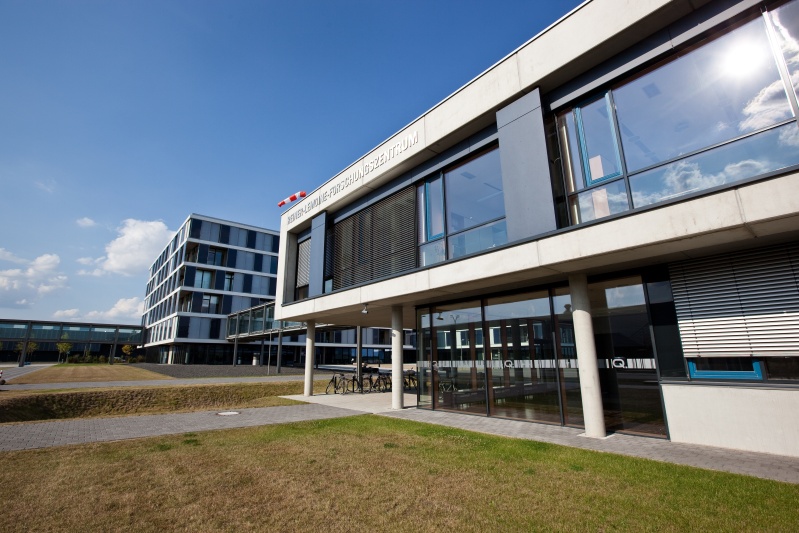From pv magazine global
As Covid-19-hit governments around the world scramble to keep investment and economies afloat, Korean PV manufacturer Hanwha Q Cells has made a €125 million commitment to German solar – and taken the opportunity to add fuel to the fire of an ongoing global patents dispute.
The company – which has its roots in former German cell maker Q-Cells AG – today announced it will spend €35 million per year for the next three years on research and development at its base in Thalheim, in the German state of Saxony-Anhalt. A further €20 million will be spent at the site for R&D equipment and machinery during that time – €10 million of it within 12 months.
The Thalheim site is where the German forerunner company established its first cell production line in 2001 and Hanwha Q Cells said the investment proved its commitment to European solar innovation amid the Covid-19 pandemic – as well as its faith in the global patent system. The company said the R&D effort would be geared towards its next-generation Q.Antum solar cells and modules.
Commitment
Thalheim-based Q Cells chief technology officer Daniel Jeong said: “Q Cells is proud of its rich history of formative innovations in solar technology. With the investments that the company has now decided upon, we are laying the foundations for the next groundbreaking innovation that Q Cells will develop in Germany and commercialize for the global solar markets.”
Hanwha has been involved in a tangle of claims against rivals in Germany, Australia and the U.S. after claiming competitors infringed its patented cell passivation technology. Last month, the company was backed by the Dusseldorf Regional Court in Germany, which agreed its patented technology had been infringed in the country by Chinese rivals JinkoSolar, Longi Solar and REC.
Announcing the latest German R&D commitment, Jeong said: “Q Cells promotes and faces fair competition for the most innovative photovoltaic technology. To this end, our company is injecting €35 million every year into our R&D headquarters in Germany alone, to deliver even greater support to this vital component of Q Cells, which supports more than 200 highly qualified and technologically-oriented jobs.
Legal suits
“We can only maintain this level of investment when given the legal assurance and the confidence that our technologies cannot simply be copied with impunity, and that patented technologies will be effectively protected by the law. We are pleased that the Regional Court of Düsseldorf has recently upheld our patent infringement complaint, finding that JinkoSolar GmbH, REC Solar EMEA GmbH, and Longi Solar Technologie GmbH unlawfully incorporated Q Cells’ patented technology into specific solar products of the respective brands. Such an acknowledgment strengthens our confidence that we can continue to set the technological bar ever higher and maintain our sustained investment on the research and development.
“Ultimately, photovoltaic technology can only survive in competition with fossil fuels if the solar industry can improve it in good faith, and thus create more affordable products introduced into a fair competitive environment. Finally, this environment renders renewable and affordable benefits to end users in public.”
Hanwha, however, lost a similar claim against Jinko, Longi and REC in the U.S. last month, when the International Trade Commission said patents had not been infringed. In June last year, Jinko and China state-owned REC petitioned for the patent asserted by Hanwha in the case to be declared invalid and in May this year it emerged REC had filed a patent claim against Hanwha in China in February, relating to REC’s split-cell and junction box technology. Both cases are yet to be settled.
A patent claim made by Hanwha against Jinko and Longi in Australiawas later expanded to include REC and distributors Baywa re and Sol Distribution and has yet to be determined.
This content is protected by copyright and may not be reused. If you want to cooperate with us and would like to reuse some of our content, please contact: editors@pv-magazine.com.









By submitting this form you agree to pv magazine using your data for the purposes of publishing your comment.
Your personal data will only be disclosed or otherwise transmitted to third parties for the purposes of spam filtering or if this is necessary for technical maintenance of the website. Any other transfer to third parties will not take place unless this is justified on the basis of applicable data protection regulations or if pv magazine is legally obliged to do so.
You may revoke this consent at any time with effect for the future, in which case your personal data will be deleted immediately. Otherwise, your data will be deleted if pv magazine has processed your request or the purpose of data storage is fulfilled.
Further information on data privacy can be found in our Data Protection Policy.